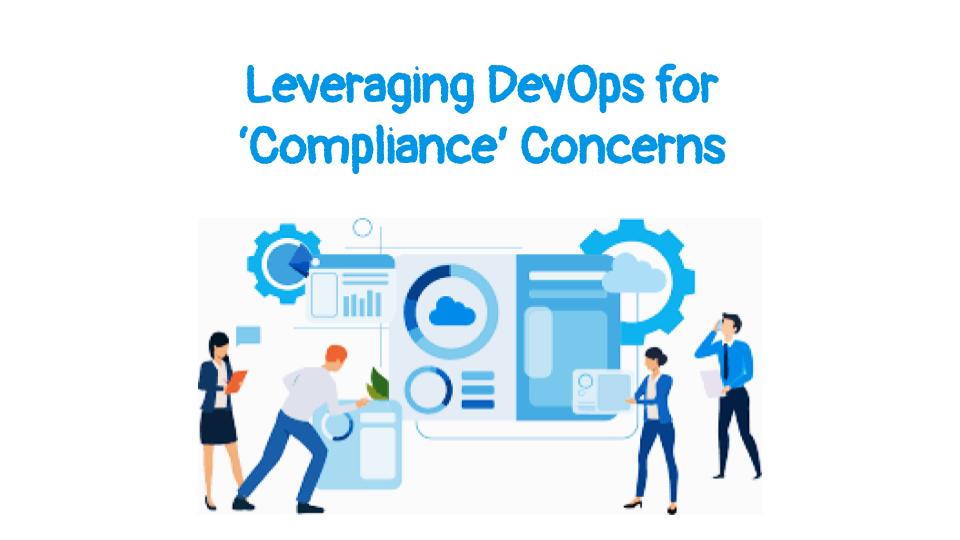
With its inception in 2009, DevOps has come a long way within a short span of time and has now become mainstream.
DevOps is all about combining development and operations. It facilitates faster and reliable software delivery along with automation, efficiency, and transparency.
In the recent decade, many organizations have started embracing DevOps without more ado to leverage the wide range of real, measurable benefits it offers.
However, many organizations feel that DevOps adoption would give rise to compliance and regulatory concerns.
This is mainly attributed to the fact that every employee in a DevOps organization has access to all the infrastructure and data in its environment.
But DevOps has a solution to deal with the compliance and access concerns too.
DevOps approach to Compliance:
DevOps leverages the concept of orchestration method to facilitate authentic persons with direct access to the infrastructure and data. It ensures that compliance is not compromised.
It manages the changes through a central orchestration tool.
DevOps compliance is quietly different from the traditional way of acquiring software compliance.
Before DevOps, one has to take strategic design decisions and follow a specific set of rules to develop and implement compliant applications.
But DevOps will instill the compliance process into the software delivery pipeline while ensuring the security of the software being developed.
Moreover, the automation aspect of DevOps automates all the repeated actions including test cases, deployments, and configurations, and ensures consistency in execution.
DevOps automation tools will aid the organizations by providing consistent and automated execution of compliance requirements.
How to implement DevOps compliance?
While the DevOps automation tools facilitate the solution for the compliance issues in the DevOps environment, it’s imperative to know the strategic approach for implementing DevOps compliance.
Educating Teams:
Traditionally, compliance is taken care of by the security team and advocates. It is out of the subject for developers, software testers or IT Ops team members. But in DevOps compliance, the engineers should have knowledge about the compliance requirements that they must meet while developing the software. As the compliance frameworks keep changing regularly, DevOps demands the engineers be aware of those changes.
Ensuring Compliance Across CI/CD Pipeline:
The organization should ensure that the compliance is met at all stages of the software delivery process including code development, testing, and deployment. The teams at each level should ensure that the code meets all the compliance requirements.
Audit Across CI/CD Pipeline:
Traditionally, the auditing process is done during the production stage of software. But in DevOps compliance, the auditing must be done across all stages of the CI/CD pipeline while ensuring that every stage is on par with the compliance requirements. This method helps in identifying the origin of the problem and quickly develop a plan to resolve it. Logging and reporting only compliance-related data is the best approach in DevOps.
Conclusion:
Now, compliance has become something that teams involved at all the stages in a software development lifecycle should render their support. When compliance is one of the primary objectives of your teams, then your company will be in a better position to leverage the benefits of the DevOps marketplace.
Get hooked on DevOps compliance to create a safer cyber world!
BDCC
Latest posts by BDCC (see all)
- Enhancing Security Posture with Azure’s AI-Driven Threat Detection - April 15, 2025
- Why Golang is Becoming the Go-To Language for DevOps Engineers - April 11, 2025
- Azure Arc: Extending Azure Services to Hybrid and Multi-Cloud Environments - April 8, 2025

